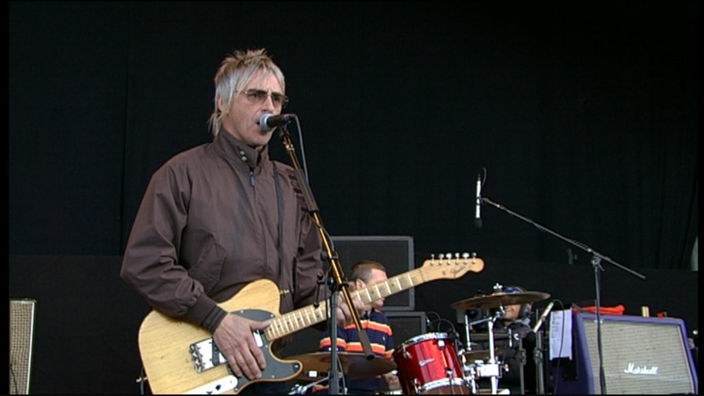

I had most of the lyrics before we started the song, but they were just words written down in a book at that point. It's got an uplifting feel, almost like a gospel song, but it's also got a very hard realism about it. I remember feeling good about it, and when we played it to friends in the studio, everyone went "wow". Then I added the middle eight and sorted the song out, adding the organ.

I remember us first hitting that groove and being fired up by it. The music came from us jamming, which we were always doing. I'd never read the Nevil Shute novel, A Town Like Alice, but I must have seen the title. So, rightly or wrongly, I was getting into brass sections and female vocals and keyboards and trying to expand our sound. We'd been a three-piece for years, and there are only so many variations on the guitar/drums format. We'd already moved on from punk very quickly, and by Sound Affects there were a lot of disparate influences. He turned me on to underground stuff and what people call northern soul. On Jam tours, we had a DJ called Ady Croasdell, who ran a 60s club. I'd heard a lot of Motown and Stax when I was a kid, but the more well-known end of it. I think we had achieved all we wanted or needed to, both commercially and artistically.'įollowing the split, Foxton did not speak to Weller for over 20 years, and Buckler said in 2015 that he still had not spoken to Weller since the break-up.At the same time, I was getting into black American soul music. I'm proud of what we did but I didn't want to dilute it, or for us to get embarrassing by trying to go on forever.

In a 2015 Sky documentary, Weller, who would go on to form The Style Council in 1983 and later pursue a solo career, said: 'I wanted to end it to see what else I was capable of, and I'm still sure we stopped at the right time. Paul Weller's decision to close a lid on The Jam, announced by his father, the band's manager, at an extraordinary band meeting in the summer of 1982, 'came as a shock' to drummer Rick Buckler and bassist Bruce Foxton, who wanted to keep the band together. Their final single 'Beat Surrender' hit the top in late November 1982, a swansong for one of the UK's most successful post-punk outfits. This was not the Jam's last number one in the UK. The only other band ever afforded this honour were The Beatles. The Jam were given the opportunity to perform both sides of the single, 'Town Called Malice' and 'Precious', on Top Of The Pops. They claimed their band would have reached number one were it not for this aggregation but the appeal fell on deaf ears. The Jam single was released in two versions (7" and 12") and Stranglers' record company EMI objected to the sales from both being aggregated for chart purposes. In the UK the Jam prevented one of the classic singles of the early eighties - The Strangers' 'Golden Brown' - from reaching the top. In Ireland the single peaked at number 2, held off the top by Welshman Shakin' Stevens' tune 'Oh Julie'. It was their only American chart entry of any note, reaching 31 in the Billboard Mainstream Rock chart and 45 on Billboard Dance Club Songs. 'Town Called Malice'/'Precious' was the Jam's third UK number one, after 'Going Underground' and 'Start!', both released in 1980. Just eight months later frontman Paul Weller would surprise the music world - and his own bandmates - by disbanding the band. The Jam were in their tenth anniversary year as a band when the double-A side 'Town Called Malice'/'Precious' hit the top of the charts in early February 1982.


 0 kommentar(er)
0 kommentar(er)
